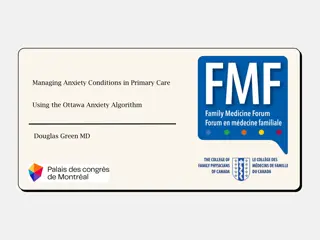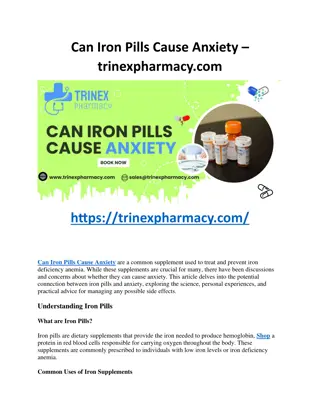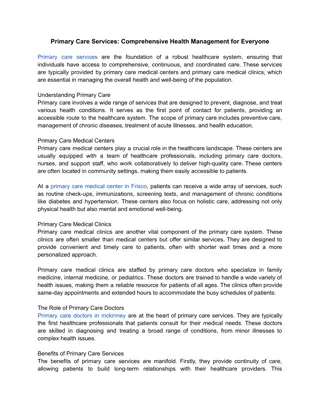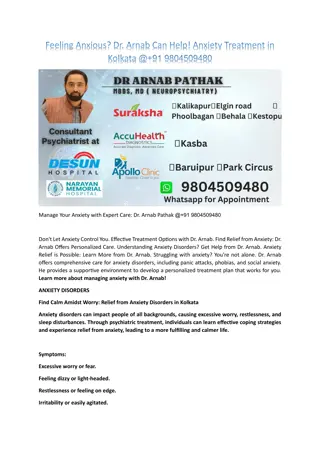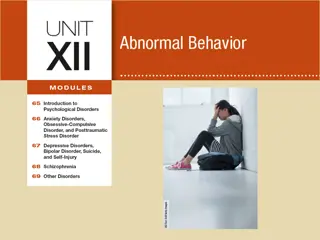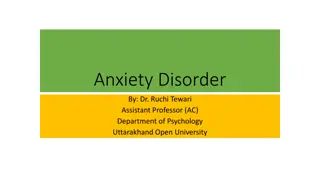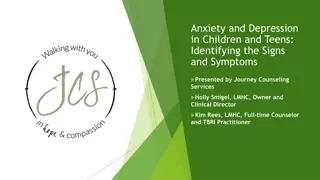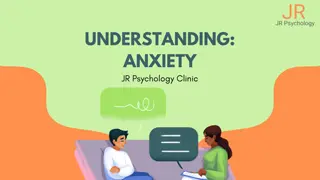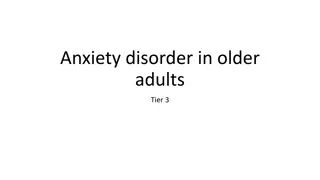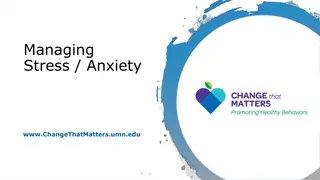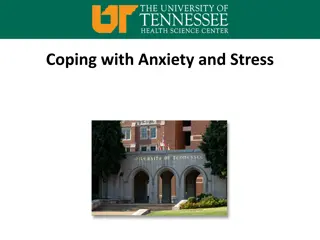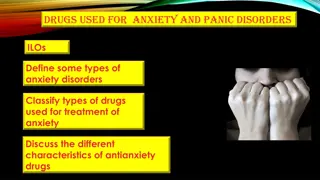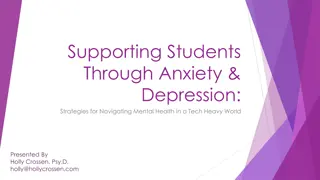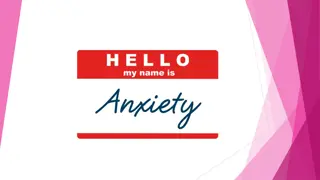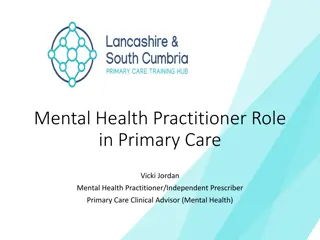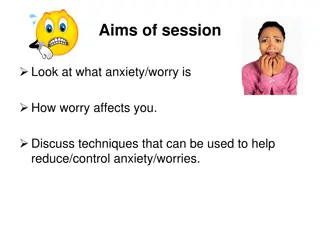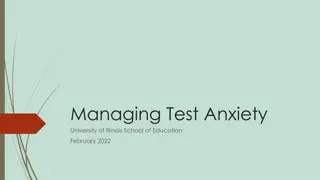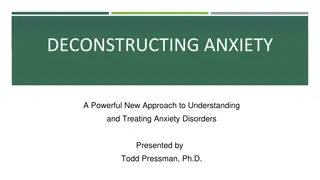
Integrated Approach to Treating Anxiety: A Collaborative Care Model
Explore a collaborative approach to managing anxiety through integrated care, including medical management, provider roles, client interactions, treatment planning, and outcome measurement. Learn about considerations for effective communication among healthcare professionals and counselors to support patients dealing with anxiety.
Uploaded on | 4 Views
Download Presentation

Please find below an Image/Link to download the presentation.
The content on the website is provided AS IS for your information and personal use only. It may not be sold, licensed, or shared on other websites without obtaining consent from the author. If you encounter any issues during the download, it is possible that the publisher has removed the file from their server.
You are allowed to download the files provided on this website for personal or commercial use, subject to the condition that they are used lawfully. All files are the property of their respective owners.
The content on the website is provided AS IS for your information and personal use only. It may not be sold, licensed, or shared on other websites without obtaining consent from the author.
E N D
Presentation Transcript
Treating Anxiety From an Integrated Approach A Collaborative Approach to Care April 6, 2019 * Tex-CHIP Training Series
Understanding Provider Role in Treating Anxiety Psychiatric Mental Health Provider (MD, PMHNP, PA) Assessment Diagnosis Treatment planning Prescribing evidence-based psychological and pharmacological treatments for anxiety Psychoactive therapy/referral for outpatient therapy Evaluation of treatment
Considerations when Interacting with Clients Medical history Conditions, Prescriptions Psychiatric history Other mental health diagnosis Hospitalizations Substance abuse history Milieu
Our Treatment Plan Healthcare Domain: Primary Care Provider: Nurse Practitioner Objective- Decrease symptoms as indicated by client report of: Goals: Interventions: a) Decrease symptoms a) Benzodiazepine (short-term, therapy)/ SSRI (a) Sweating, chest pain, and dizziness (b) Difficulty focusing, feeling tense and fatigued (c) Excessiveworry (d) Beck Anxiety Inventory score of 28 (severe anxiety) b) Restore overall functionality b) Psychotherapy (CBT, DBT)
Measuring Outcomes/Success Patient report of decrease in overall symptoms Improvement in Beck Anxiety Inventory Score Collaborating with counselor on patient s progress Monitoring medication compliance Pharmacy
Communication Needed from Counselors Patient progress Appointment compliance, short term/long term goals (in progress, completed) Changes in current symptoms (worsening, stagnant, improving) New symptoms, i.e. SI, HI, AVH, mood changes Interdisciplinary communication regarding pharmacological treatment goals

